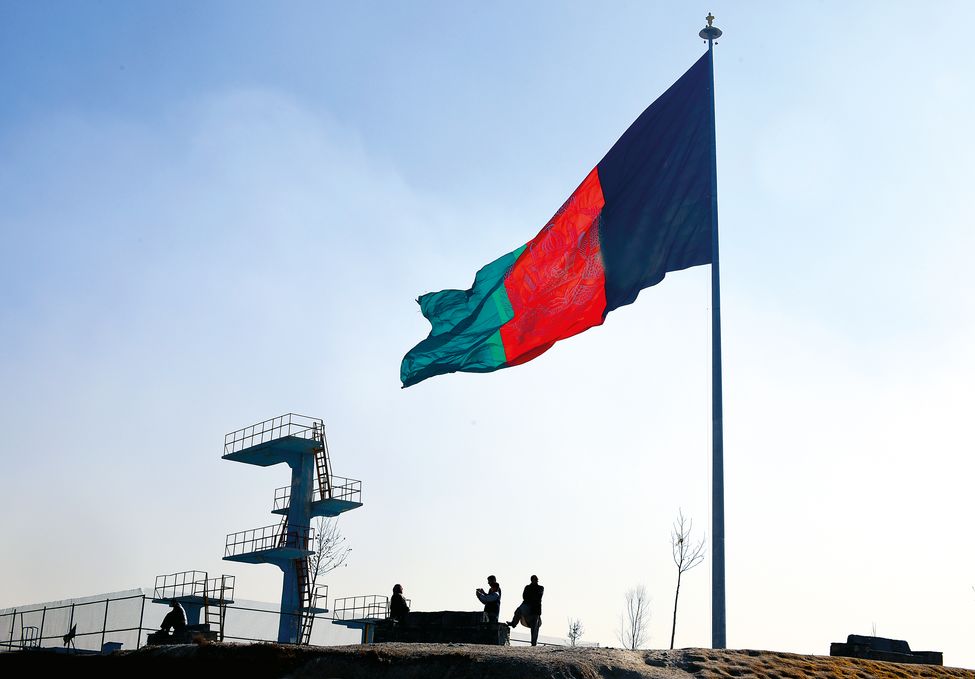
India since Nehru’s time has been trying to put itself on the path of a major player in the region on one hand and attain a global position on the other. Besides China, Pakistan is a state which challenges India in many ways that irk the former to a large extent. As a rising power, India wants to enhance its role and ensure its presence in a fragile state Afghanistan in the post-9/11 era where Pakistan had a greater role earlier. For the said purpose, the U.S. invasion of Afghanistan and the subsequent policies Washington adopted provided a favorable ground for Delhi to adopt a proactive policy vis-à-vis Afghanistan.
India’s major role in Afghanistan has always been suspicious for Islamabad for several reasons. Since Pakistan’s inception, India was using tactics to destabilize Pakistan by supporting the elements who wanted to have a greater Afghanistan or Pashtunistan. Likewise, India is now supporting the unrest in Balochistan by using Pakistan’s North-Western borders. This article deliberates upon how India by using its soft power in Afghanistan against Pakistan on one hand and making Pak-Afghan relations sour on the other.
Following the overthrow of the Taliban regime and formulation of the new political setup in Afghanistan, India’s engagement with Afghanistan became multidimensional as the new administration in Kabul had cordial relations with India. Soon after the installation of the interim authority in late 2001, the Indian Liaison Office was converted to a full-fledged embassy in Kabul. Since then, India has continued to pursue a policy of high-level engagement through humanitarian, financial, and project assistance to have clout in Kabul to counterbalance Islamabad’s influence in Afghanistan. Likewise, back in the 1990s, India was supporting the anti-Taliban Northern Alliance as Pakistan was supporting the Taliban, a natural choice for India. Most of the core members of the Northern Alliance were holding key positions in the new setup.
Any difference or trust-deficit between Pakistan and the Taliban might benefit India in the future which should be avoided
Indian financial aid to post-Taliban Afghanistan is roughly $3 billion in the form of developmental projects, scholarships, infrastructure projects, food packages, roads, medical, and institutional building. Thus, India has become one of the top six donors to post-Taliban Afghanistan. India has done a number of projects in Afghanistan: 1) Afghan parliament in the capital having a library, 2) building educational institutions and provided them with aid 3) construction of energy projects like dams, 4) construction of dams and water supply channels, 5) electricity supply lines, 6) construction of health care facilities, 7) building an agriculture university, 8) energy power station in Kabul city, 9) Sports facilities, 10) cold storage in various cities, 11) telephone lines in various parts of the country, 12) television network system, 13) construction of wells and channels in many areas, 14) and rehabilitation of several water reservoirs.
Keeping in view the above-mentioned projects, it cannot be said the Indian aid is based on humanitarian grounds at all. India’s major concern is to counter Pakistan in Afghanistan and destabilize Pakistan by in-filtering rebels to Balochistan. A former strategic adviser to the U.S. commander in Afghanistan Mr. Zachary Constantino maintains that India and Pakistan pursue mutually exclusive objectives in Afghanistan and leverage sharply different tools to achieve their respective goals. Furthermore, the US officials also believe that Pakistan has utilized militant groups, including the Afghan Taliban, as strategic proxies, while India places considerable weight on its soft power influence among Afghans. However, such narratives seem to hold no more weightage especially in the contemporary regional environment, where India has been evidently involved in waging proxies against Pakistan by utilizing its operatives in Afghanistan.
The Indian influence has caused a huge hatred in the minds of the Afghans for Pakistan both on a governmental and non-governmental level. Even the Afghanis cannot tolerate any Pakistani visiting any of Afghanistan’s cities while they, on the other hand, do businesses in Pakistan, receive education on Pakistani scholarships in the country, and enjoy the best health care facilities in Peshawar and Islamabad.
Hence, the biggest threat India feels in Afghanistan is the Taliban over whom Pakistan, as many believe, still has leverage. The Indian strategies in Afghanistan are in disarray following the US-Taliban Doha deal. India considers if the Taliban become part of the Afghan government, it would definitely not enjoy the leverage they have had over the Afghan government following the US invasion. Any difference or trust-deficit between Pakistan and the Taliban might benefit India in the future which should be avoided. Nevertheless, the inclusion of the Taliban in the Kabul administration would likely bring peace to the war-torn country and ultimately make Afghanistan’s policy balanced towards the neighboring countries.
Zafar Iqbal Yousafzai is Senior Research Associate at Strategic Vision Institute, Islamabad. He tweets @yousafzaiZafar
Source: https://dailytimes.com.pk/737416/analyzing-the-indian-strategy-in-afghanistan/

